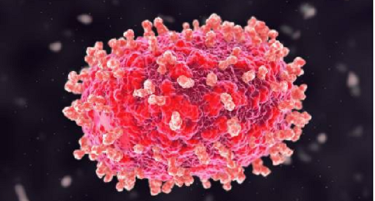The Nigeria Centre for Disease Control and Prevention (NCDC) has reported a concerning rise in Mpox cases across several states, reaffirming the persistent health challenges faced by the country. According to the NCDC, eight new cases have been confirmed, marking a troubling development in Gombe, Plateau, and Akwa Ibom states. These latest cases are part of a broader outbreak that continues to spread despite the country’s ongoing public health efforts.
The total number of confirmed Mpox cases now stands at 67, distributed across 23 states and the Federal Capital Territory (FCT). This number was drawn from an alarming 1,031 suspected cases recorded across 35 states, including the FCT. The NCDC’s director-general, Jide Idris, made these revelations during a press briefing in Abuja, underscoring the government’s commitment to transparency and timely updates on public health crises. The briefing aimed to provide clarity on the current situation, highlight the measures being taken to manage the outbreak, and prepare citizens for potential future challenges.
Mpox, formerly known as Monkeypox, is a viral disease that causes symptoms ranging from fever, muscle aches, and swollen lymph nodes to more severe issues such as a distinctive rash and painful skin lesions. The virus is spread through close contact with infected individuals or animals, and while it is generally not as fatal as some other viral diseases, its spread has created significant concern due to its potential to cause widespread outbreaks if not properly contained. This latest surge in Mpox cases calls for increased vigilance among healthcare providers and the general population.
 In addition to Mpox, the NCDC also provided updates on the ongoing cholera outbreak in the country, a disease that has been plaguing parts of Nigeria for several years. According to the agency, a total of 141 suspected cholera cases have been recorded, along with one confirmed fatality. These cases have been traced to Katsina, Lagos, Kano, Jigawa, and Adamawa states, with a case fatality rate of 0.7 per cent, illustrating the severity of the situation.
In addition to Mpox, the NCDC also provided updates on the ongoing cholera outbreak in the country, a disease that has been plaguing parts of Nigeria for several years. According to the agency, a total of 141 suspected cholera cases have been recorded, along with one confirmed fatality. These cases have been traced to Katsina, Lagos, Kano, Jigawa, and Adamawa states, with a case fatality rate of 0.7 per cent, illustrating the severity of the situation.
While the number of confirmed cholera cases is alarming, it pales in comparison to the cumulative figures recorded since the start of the year. In total, Nigeria has seen 7,663 suspected cholera cases, resulting in 216 confirmed deaths. The cholera outbreak has spread across multiple states, with vulnerable communities bearing the brunt of the disease due to poor sanitation, lack of access to clean water, and ongoing environmental challenges.
During the briefing, Director-General Jide Idris emphasized that although there has been a noticeable decline in the number of cholera cases in recent weeks, the country should brace itself for a potential increase in cases, particularly in the flood-prone areas. “The floods we are currently seeing in parts of the country will likely exacerbate the situation,” Idris warned. Cholera is a waterborne disease, and flooding typically increases the risk of contamination of drinking water sources with bacteria that cause the illness. The NCDC, therefore, anticipates that the ongoing flooding in several regions could trigger new outbreaks in the coming weeks.
This year’s rainy season has already brought significant flooding to many parts of Nigeria, and as water levels rise, so too does the risk of waterborne diseases such as cholera. Communities in low-lying areas or those with inadequate drainage systems are particularly vulnerable, and the NCDC is working alongside local and state governments to monitor these areas and provide the necessary interventions to mitigate the spread of the disease.
Public health experts have consistently warned about the dangers of cholera outbreaks, particularly in rural communities with limited access to healthcare. The NCDC has been proactive in its response, deploying rapid response teams to affected areas, and distributing hygiene kits and clean water supplies in an effort to reduce the impact of the outbreak. However, with the added complications brought on by flooding, the agency is urging all Nigerians to take precautionary measures, including boiling water before drinking, maintaining proper sanitation, and seeking medical help immediately if cholera symptoms such as diarrhea and vomiting occur.
The NCDC’s latest figures underscore the importance of continued vigilance and collaboration between government agencies, healthcare workers, and communities. Mpox and cholera, though different in nature, both require a strong and coordinated public health response. With Mpox spreading across new states and cholera poised to rise as a result of flooding, the challenge for Nigeria’s health authorities is not just containment but prevention. The NCDC continues to work closely with international partners, including the World Health Organization (WHO), to monitor these outbreaks and develop long-term strategies to prevent future occurrences.
The agency has also called on state governments to take immediate steps to address the root causes of cholera outbreaks, particularly the lack of clean water and sanitation infrastructure in many communities. Without these basic necessities, the fight against cholera is unlikely to succeed in the long term.
As Nigeria continues to grapple with these dual health crises, the role of individual citizens cannot be overstated. The NCDC has urged the public to remain informed about both Mpox and cholera, to practice proper hygiene, and to follow any guidance provided by local health authorities. In the face of these ongoing outbreaks, the health and safety of all Nigerians depend on a collective effort to prevent the spread of disease.




